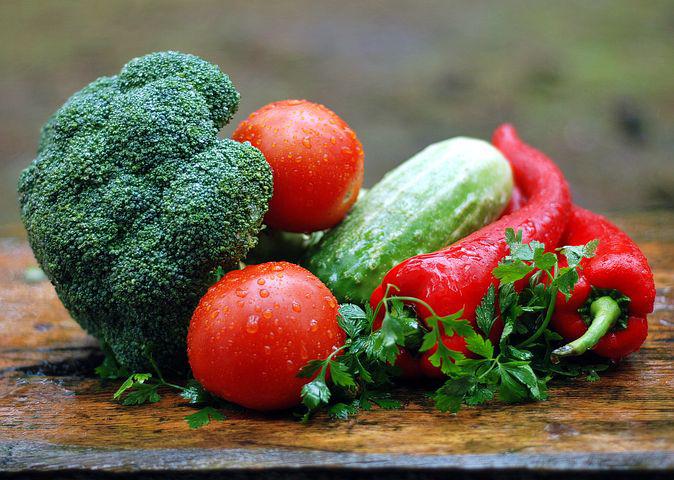
Throwing together a quick, nutritious meal requires a well-stocked kitchen. However, many popular healthy foods are highly perishable and must be used within a few days, causing many home cooks to burn through their food stores quickly.
Still, you can keep a number of healthy, long-lasting staples your pantry, freezer, and fridge and use them to make nutrient-dense meals and snacks — even when you’re out of your typical go-to foods.
1. Dried and canned beans and lentils
Beans and lentils are amongst the healthiest foods you can eat. Moreover, dried and canned beans and lentils have very long shelf lives, making them a top non-perishable food choice to keep in your kitchen.
In fact, canned beans can be stored in the pantry at room temperature (68℉ or 20℃) for 2–5 years, while dried beans can last 10 or more years. Dried beans have such a long shelf life because they lack the moisture needed to promote microbial growth (1, 2, 3Trusted Source).
In addition to being shelf stable, canned and dried beans and lentils are highly nutritious, offering an abundance of nutrients, including fiber, magnesium, B vitamins, and iron (4Trusted Source).
Try adding black beans, chickpeas, lentils, and kidney beans to chilies, soups, and salads.
2. Nuts, seeds, and their butters
Nuts and seeds are nutritional powerhouses, providing healthy fats, filling protein, fiber, and an array of vitamins and minerals.
Depending on the type, nuts and seeds can be kept at room temperature for 1–4 months, making them a smart ingredient to store in your pantry (5).
Natural nut and seed butters are long lasting, healthy alternatives to their commercial counterparts, which typically contain added oils and sugar.
Nuts and seeds can be used in many dishes, including oatmeal, yogurt, trail mix, and salads. Nut and seed butters make excellent additions to smoothies and can be added to sauces or spread onto fruits or veggies for a quick, satisfying snack.
3. Grains
When in a pinch, grain-based dishes like salads, grain bowls, soups, and pilafs make a great choice due to their versatility and convenience.
Depending on the type, grains like spelt, brown rice, amaranth, bulgur, oats, and quinoa can be kept safely at room temperature for months to years, making them a smart choice to buy in bulk (6).
Plus, these grains are excellent sources of fiber and micronutrients, including B vitamins, manganese, and magnesium, and eating them may help protect against conditions like heart disease and certain cancers (7Trusted Source).
4. Frozen fruit and vegetables
Many fresh fruits and veggies, such as berries and greens, are highly perishable. Yet, buying these foods in frozen form allows you to always have nutrient-dense produce on hand.
Nutrition-wise, frozen fruits and veggies are comparable to fresh produce in micronutrient content, making them a healthy and convenient freezer staple (8Trusted Source).
Try adding frozen greens to sautés, soups, and smoothies. Frozen berries can be used similarly to fresh berries and add natural sweetness to oatmeal, smoothies, baked goods, and yogurt parfaits.
5. Honey and maple syrups
Everyone needs a little sweetness from time to time. Honey and maple syrups are natural sweeteners that offer unique health benefits.
For example, raw honey has antimicrobial and anti-inflammatory properties and contains powerful antioxidants. Maple syrup is also rich in antioxidants and contains small amounts of nutrients like magnesium, potassium, and manganese (9Trusted Source, 10Trusted Source, 11Trusted Source).
Honey and maple syrups can be used to add flavor and depth to both sweet and savory recipes. Just remember to use these sweeteners sparingly, as too much sugar from any source can harm your overall health.
6. Apple cider vinegar
Apple cider vinegar has multiple uses in the kitchen. For example, it’s an effective all-purpose cleaner and can be used as a flavorful addition to recipes like sauces, dressings, and baked goods.
In addition to its versatility, this tangy vinegar is incredibly healthy. Research has shown that it may have antidiabetic, anti-inflammatory, antioxidant, and heart-health-promoting properties (12Trusted Source, 13Trusted Source, 14Trusted Source).
7. Healthy fats for cooking
Certain fats, including coconut oil, ghee, and olive oil, can be safely kept at room temperature for a year or more, depending on the type. For this reason, you can buy these pantry staples in larger quantities so that you always have a healthy fat source on hand (15).
Cooking with these healthy fats helps add flavor to recipes and enhances the absorption of fat-soluble vitamins, minerals, and antioxidants from food (16Trusted Source).
8. Fermented foods
Fermented foods like sauerkraut, kimchi, and pickles are delicious and versatile, and they offer a number of health benefits. Research has shown that they can improve digestive health and may help reduce inflammation and blood sugar levels (17Trusted Source, 18Trusted Source, 19Trusted Source).
Plus, these foods are long lasting, so you can stock up without worrying about food waste. For example, sauerkraut and pickles can be stored at room temperature for up to 18 months (1).
You can enjoy these tangy foods straight out of the jar, or use them as flavorful toppings for salads and other dishes.
9. Spices and dried herbs
To create flavorful recipes, it’s essential to have a well-stocked spice rack. Spices and herbselevate the flavor of dishes and can come in handy when you’re in a recipe rut.
What’s more, incorporating dried herbs and spices into your diet can promote your health in various ways.
Turmeric, cayenne pepper, rosemary, cinnamon, ginger, oregano, and cumin all offer impressive health benefits and may help reduce inflammation and lower your risk of certain diseases (20Trusted Source).
10. Garlic and onions
Garlic and onions are the backbone of many recipes and favored by both professional and home cooks for their versatility and long shelf life.
Both have also been shown to benefit your health in many ways, and enjoying them regularly may help reduce your risk of various illnesses, including certain cancers, mental decline, heart disease, and diabetes (21Trusted Source, 22Trusted Source, 23Trusted Source).
11. Long-lasting fresh fruits and veggies
Although many fresh fruits and veggies spoil quickly even when refrigerated, there are a number of long-lasting varieties to choose from.
Sweet potatoes, butternut squash, apples, beets, cabbage, spaghetti squash, rutabagas, pomegranate, carrots, and citrus fruits are just some examples of fruits and veggies that can keep for a few weeks or more when stored in the fridge or on the counter.
12. Frozen fish, poultry, and meat
While fresh fish, meat, and poultry are highly perishable, frozen versions of these products will stay edible much longer if they’re kept at the right temperature.
For example, fresh chicken and meat will be safe for up to 1 year when kept frozen (0℉ or -17℃), while fish like cod and haddock can be stored in the freezer for up to 5 months (24, 25).
Having a good supply of frozen poultry, meat, and fish can help you prepare healthy, protein-rich meals when fresh animal protein sources are limited.
13. Healthy condiments
Adding a dash of hot sauce or drizzle of tahini to a recipe can bring a dish from boring to sensational in a matter of seconds.
However, it’s important to choose healthy condiments to stock your pantry and avoid purchasing highly processed sugar-laden products.
Tahini, salsa, coconut aminos, balsamic vinegar, coconut butter, mustard, nutritional yeast, tamari, raw honey, and sriracha are just some examples of multi-purpose condiments that are not only tasty but also healthy.
14. Eggs
Eggs are a versatile food that can be enjoyed at any time of the day. They’re packed with protein and just about every vitamin and mineral your body needs to thrive, which is why they’re often referred to as nature’s multivitamin (26Trusted Source).
Although eggs are considered to be perishable, they can last up to 5 weeks in the fridge (24).
Try making a nutrient-dense veggie omelete or adding a fried egg to oatmeal, salads, or vegetable dishes to boost the protein content.
Purchase pasture-raised eggs if you can. Eggs from pastured hens are not only more nutritious than those of caged hens but also the hens laying them are typically treated much better. They have space to roam outdoors and the ability to partake in normal foraging behavior (27Trusted Source, 28).
15. Full fat yogurt
Yogurt can be used in a variety of ways in the kitchen, making it a must-have in any well-stocked fridge. It can be enjoyed with berries, added to smoothies, dolloped onto veggie dishes, or used to add creaminess to sauces and soups.
Although many people reach for nonfat and reduced fat yogurt, full fat yogurt is highly nutritious and has been associated with a number of health benefits.
For instance, eating full fat yogurt may protect against heart disease and the development of belly fat, which is a risk factor for many conditions, including diabetes (29Trusted Source, 30Trusted Source, 31Trusted Source).
Most yogurt can be kept for up to 3 weeks in the fridge and even be enjoyed well past its expiration date, as long as it still looks, tastes, and smells fresh (32, 33).
The bottom line
Having your fridge, pantry, and freezer stocked with healthy foods can ensure that you always have ingredients on hand to prepare a healthy, home-cooked meal.
By purchasing a few of the foods listed above during your next few grocery outings, your kitchen will be fully stocked with healthy staples before you know it.









